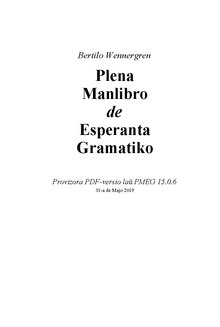Esperanto is the most widely used constructed language intended for international communication; it was designed with highly regular grammatical rules, and is therefore considered easy to learn.

Ido is a constructed language derived from a reformed version of Esperanto, and similarly designed with the goal of being a universal second language for people of diverse backgrounds. To function as an effective international auxiliary language, Ido was specifically designed to be grammatically, orthographically, and lexicographically regular. It is the most successful of the many Esperanto derivatives, called Esperantidoj.
Esperanto is written in a Latin-script alphabet of twenty-eight letters, with upper and lower case. This is supplemented by punctuation marks and by various logograms, such as the digits 0–9, currency signs such as $ € ¥ £ ₷, and mathematical symbols. The creator of Esperanto, L. L. Zamenhof, declared a principle of "one letter, one sound", though this is a general rather than strict guideline.
A limited number of Esperanto adverbs do not end with the regular adverbial ending -e. Many of them function as more than just adverbs, such as hodiaŭ "today" and ankoraŭ "yet" or "still". Others are part of the correlative system, and will not be repeated here.
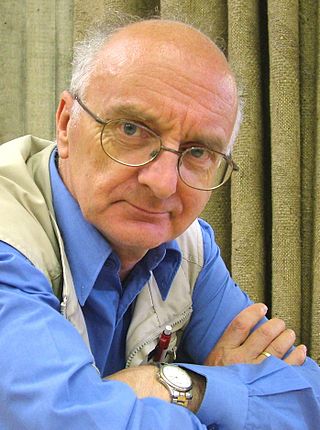
Gerrit Berveling is a Dutch Esperanto author.
Gender asymmetry is an aspect of the constructed international auxiliary language Esperanto which has been challenged by numerous proposals seeking to regularize both grammatical and lexical gender.

The Esperanto Wikipedia is the Esperanto version of Wikipedia, which was started on 11 May 2001, alongside the Basque Wikipedia. With over 360,000 articles as of October 2024, it is the 37th-largest Wikipedia as measured by the number of articles, and the largest Wikipedia in a constructed language.
Volitive modality is a linguistic modality that indicates the desires, wishes or fears of the speaker. It is classified as a subcategory of deontic modality.
The longest word in any given language depends on the word formation rules of each specific language, and on the types of words allowed for consideration.
Esperanto is a constructed international auxiliary language designed to have a simple phonology. The creator of Esperanto, L. L. Zamenhof, described Esperanto pronunciation by comparing the sounds of Esperanto with the sounds of several major European languages.
The original word base of Esperanto contained around 900 root words and was defined in Unua Libro, published by L. L. Zamenhof in 1887. In 1894, Zamenhof published the first Esperanto dictionary, Universala vortaro, which was written in five languages and supplied a larger set of root words, adding 1740 new words.
Esperanto and Ido are constructed international auxiliary languages, with Ido being an Esperantido derived from Esperanto and Reformed Esperanto. The number of speakers is estimated at 100 thousand to 2 million for Esperanto, whereas Ido is much fewer at 100 to 1 thousand.

Plena Ilustrita Vortaro de Esperanto is a monolingual dictionary of the language Esperanto. It was first compiled in 1970 by a large team of Esperanto linguists and specialists under the guidance of Gaston Waringhien and is published by the Sennacieca Asocio Tutmonda (SAT). It may be consulted online for free.
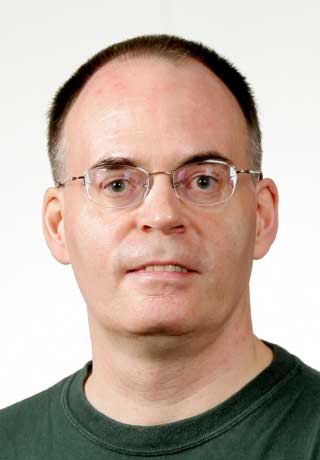
Bertilo Wennergren is a Swedish Esperantist living in the village of Schossin in northern Germany.

Michel Duc Goninaz was a French Esperantist known worldwide for his 2002 revision of La Plena Ilustrita Vortaro de Esperanto.
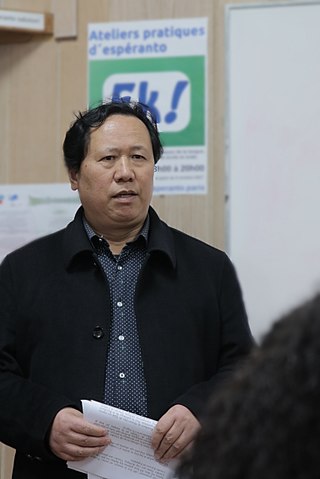
The Esperantist of the Year is an honorary designation bestowed each year by the editors of the Esperanto-language monthly La Ondo de Esperanto. The award recipient is selected by an international jury led by Halina Gorecka, the Russian publisher of the magazine.
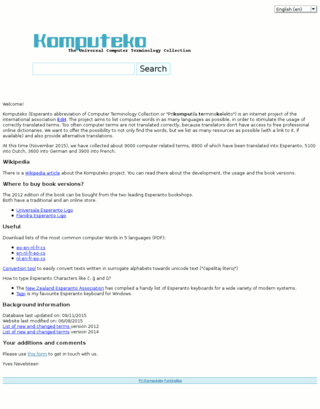
Komputeko is an online project of the non-profit youth organization E@I (“Education@Internet”) with the goal of bringing together parallel computer terminology from various dictionaries in order to facilitate access to and comparison between different translations and thus promote exact use of language and counteract the usage of linguistic borrowings from American English. Komputeko is short for the Esperanto noun phrase "Prikomputila terminokolekto", meaning "collection of computer terms". The dictionary is written in five languages, and there are plans to expand it into other languages. A preliminary version with a few other languages already exists.
The Tekstaro de Esperanto is a text corpus of the Esperanto language, a large collection of very diverse texts for linguistic research on Esperanto. As of January 2019, the corpus has texts with a total of 5,177,208 words. It is searchable by regular expressions, including custom search terms that are lexical and grammatical.

The following outline is provided as an overview of and topical guide to Esperanto:
Ri is a singular third-person gender-neutral pronoun in Esperanto intended as an alternative to the gender-specific li ("he") and ŝi ("she"). It is used by some speakers when the gender of a person is not known or when it is not desirable to specify them as either a "he" or "she", similar to how singular they is used in English. In Esperanto, the usage of this pronoun is called riismo ; it is one of several proposals for gender-neutral pronouns in Esperanto.
